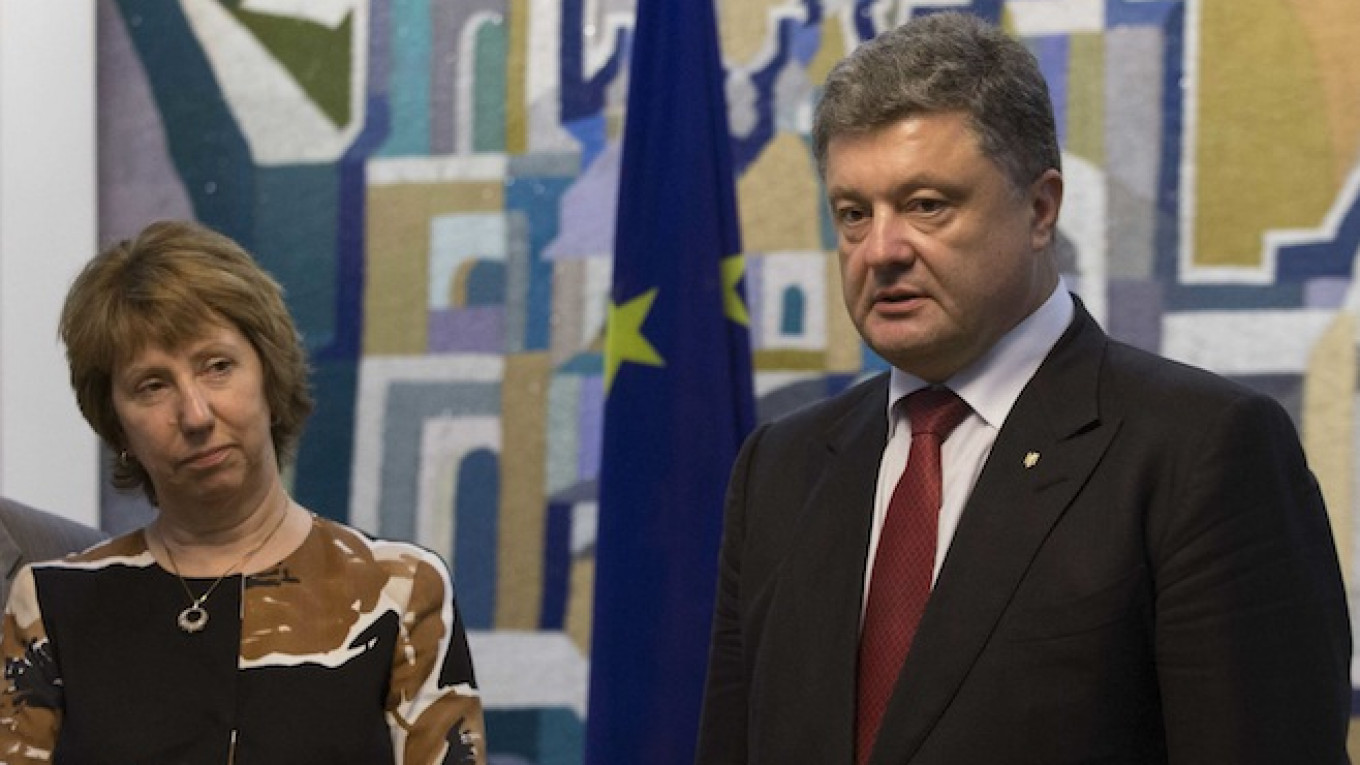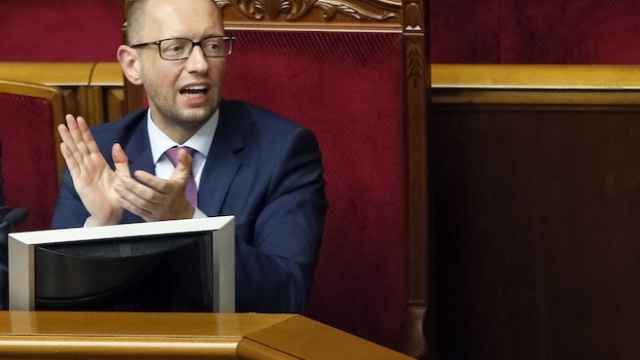Russia wants to propose amendments to the association agreement between Ukraine and the European Union, top officials said, despite Ukraine and the EU maintaining that the bilateral agreement is moments away from ratification and not open to suggestions.
Economic Development Minister Alexei Ulyukayev and Kremlin economic adviser Andrei Belousov said the plan to propose amendments to the deal was the result of negotiations between President Vladimir Putin and his Ukrainian counterpart, Petro Poroshenko, in Minsk this week, Vedomosti reported Thursday.
Ukrainian officials showed little patience for the idea. "We are not going to change the text of the agreement," Foreign Minister Pavlo Klimkin wrote on his Twitter account Wednesday.
Russian officials' wishes "should not be taken for reality," he added.
Poroshenko wrote on Wednesday that the association agreement will be submitted to the Ukrainian parliament for ratification in mid-September.
An assistant to European Union foreign policy chief Catherine Ashton told Vedomosti that although the EU is prepared to discuss the agreement's economic impact on Russia, a third party's suggestions have no place in the bilateral agreement.
Viewed in Europe as a simple trade arrangement, the deal has faced all manner of opposition from Russia over the past year, including unofficial trade bans on Ukrainian imports and a $15 billion bailout plus a price cut on gas supplies offered to Ukraine late last year.
Former Ukrainian President Viktor Yanukovych's decision to take Putin's offer and suspend preparations for the association agreement last November triggered months of mass protests that ultimately overthrew his government and sent him fleeing to the sanctuary of Russia's Rostov region.
The deal includes the establishment of a deep and comprehensive free-trade area between Ukraine and the EU, a provision that Russian officials say will cause a damaging influx of cheap European goods via Ukraine.
The association agreement's economic impact on Russia dominated Putin's speech Tuesday at the opening of the summit in Minsk.
Putin said the deal will close off Ukraine to Russian goods and vice versa. A flood of European products could cost the Russian economy 100 billion rubles ($2.7 billion), Putin said, adding that in this case Russia would take steps to defend its market.
There are three points in the association agreement that Russia wants to see amended, an undisclosed government official told Vedomosti.
First, Russia wants Ukraine's duties on European goods be lowered more gradually than prescribed under the current deal, the official said.
Second, Russia is concerned that the EU's tougher technical regulations could block Russian goods' access to Ukraine altogether, cutting off a market for Russian producers. And finally, Russia wants assurances that Russian and European phytosanitary requirements would either be unified or mutually recognized within Ukraine.
While resistant to modifying the agreement, Europe and Ukraine have agreed to weigh in on its possible costs. A group of Russian, Ukrainian and EU representatives is scheduled to prepare a report by Sept. 12 on the risks that the agreement could pose to countries in the Russia-led Customs Union.
Contact the author at [email protected]
A Message from The Moscow Times:
Dear readers,
We are facing unprecedented challenges. Russia's Prosecutor General's Office has designated The Moscow Times as an "undesirable" organization, criminalizing our work and putting our staff at risk of prosecution. This follows our earlier unjust labeling as a "foreign agent."
These actions are direct attempts to silence independent journalism in Russia. The authorities claim our work "discredits the decisions of the Russian leadership." We see things differently: we strive to provide accurate, unbiased reporting on Russia.
We, the journalists of The Moscow Times, refuse to be silenced. But to continue our work, we need your help.
Your support, no matter how small, makes a world of difference. If you can, please support us monthly starting from just $2. It's quick to set up, and every contribution makes a significant impact.
By supporting The Moscow Times, you're defending open, independent journalism in the face of repression. Thank you for standing with us.
Remind me later.






